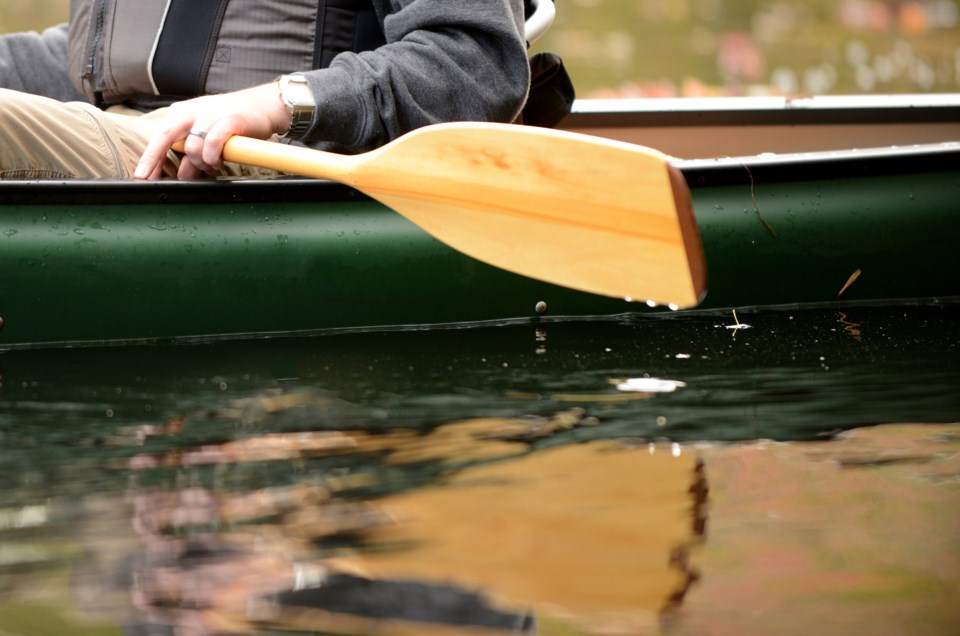Michigan's Superior Watershed Partnership deployed the Great Lakes Climate Corps to hike over 300 kilometres of coastline picking up litter and debris along the way. They also coordinated local dive teams to remove underwater materials. As a result of this program, nearly six tonnes (5,500 kg) of marine debris has been removed from Lake Superior this season.
The full text of the release follows:
MARQUETTE, Mich. – The Superior Watershed Partnership utilized funding awarded by the National Oceanic and Atmospheric Administration Marine Debris Program to host coastal cleanups, beach hikes and diving events this past summer for the City of Marquette, the Keweenaw Bay Indian Community and the Bay Mills Indian Community.
The SWP deployed the Great Lakes Climate Corps to hike over 300 kilometres of coastline picking up litter and debris along the way. They also coordinated local dive teams to remove underwater materials.
As a result of this program, nearly six tonnes (5,500 kg) of marine debris has been removed from Lake Superior this season.
Debris removed includes litter, plastic, tires, anchors, derelict fishing gear, bicycles, household appliances, and other assorted materials.
SWP plans to host additional cleanup events in 2023 partnering with other coastal communities along more than 900 kilometres of Lake Superior shoreline in Michigan’s Upper Peninsula.
"Collaboration has been key in planning these community clean-up events" said SWP program manager Tyler Penrod.
"Thanks to the Great Lakes Climate Corps, the City of Marquette, the Bay Mills Indian Community, the Keweenaw Bay Indian Community's Natural Resource Department and the Great Lakes Scuba Diving Club, these events have been very successful for coastal communities and our coastal environment."
Marine debris, also known as marine litter, is human-created waste that has been accidentally or deliberately released into the Great Lakes or ocean waters.
Marine debris impacts aquatic habitat, injures or kills fish and other wildlife, interferes with navigation safety, and can pose a threat to human health.
Marine debris includes a wide range of items both small and large including plastic bags, bottles, cans, commercial fishing gear, tires, appliances, cars and abandoned boats.
The most common materials are plastics, glass, metal, paper, cloth, rubber, and wood products. Sources of marine debris include stormwater runoff, littering, industrial activities, unregulated construction sites and illegal dumping.
According to SWP executive director Carl Lindquist, “The recent increase in nature tourism has been good for the regional economy but has also led to increased environmental impacts, including an increase in litter and other debris in the sensitive coastal zones of Lake Superior.
“Thanks to NOAA funding, we’ve been able to assist communities and tribes with clean-up events and improving coastal habitat.
“The SWP is committed to making the Upper Peninsula a Great Lakes model for coastal resiliency and truly sustainable tourism. We encourage residents and tourists alike to consider volunteering at one of our coastal clean-up events next summer.”
Sadly, there is no place on earth that is immune to this problem. While the Upper Peninsula has approximately 312,000 year-round residents, it has experienced a dramatic increase in nature tourism in recent years with millions of additional visitors annually.
Unfortunately, many Great Lakes coastal areas have seen a corresponding increase in beach litter, shoreline erosion, habitat degradation and water quality impacts. The SWP has been a leader in pollution prevention, habitat restoration and coastal resiliency which are all components of sustainable tourism.
To address the problem in the Upper Peninsula the SWP has mobilized its Great Lakes Climate Corps, comprised of young adults who possess both the passion and work ethic to implement a wide range of environmental projects that benefit the Great Lakes and mitigate the impacts of climate change.
Several additional prioritized sites such as harbors and marinas will be eligible for underwater debris removal projects in 2023.
While the SWP has conducted annual beach clean-up events for over two decades, NOAA funding allows the program to provide more services and serve more communities.
Communities, Tribes and other Lake Superior coastal property owners are encouraged to contact the SWP with information on large debris locations, potential beach clean-up sites or related debris removal sites.
This is a two-year project funded through a $122,000 NOAA Marine Debris grant with clean-up events taking place through 2023.
Meanwhile, the NOAA Marine Debris Art Contest is now open. The NOAA Marine Debris Program holds an annual art contest to reach K-8 students and help raise awareness about marine debris. The contest will close on Dec. 16. Sign up by clicking here.
